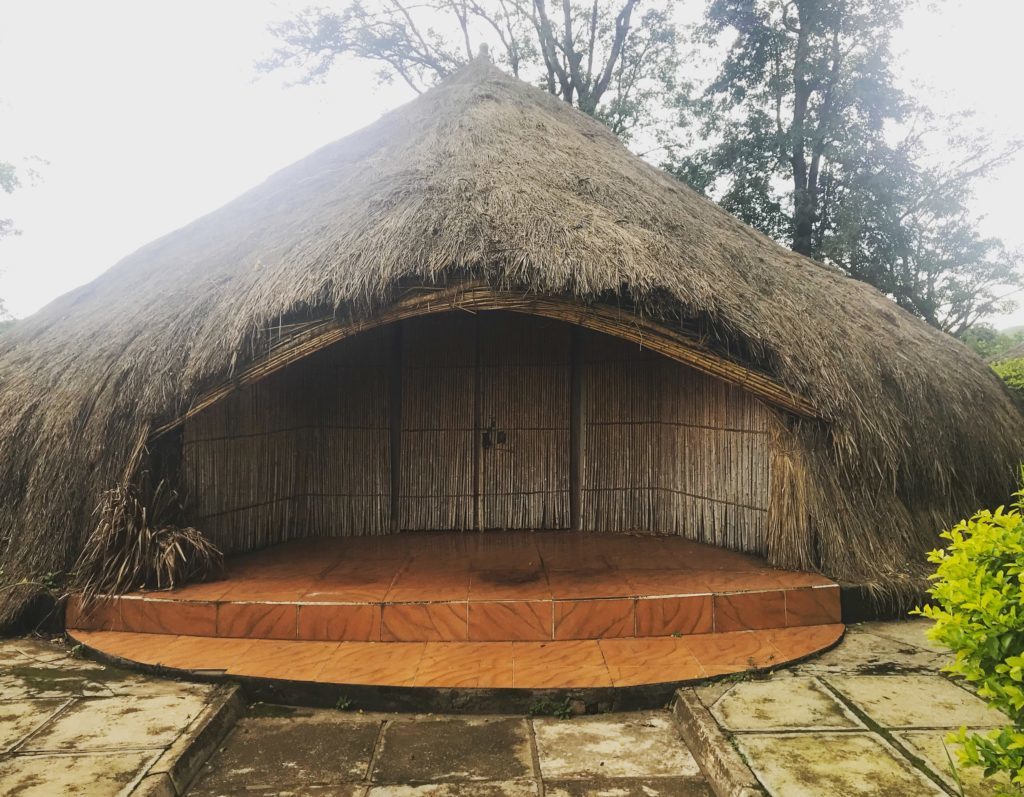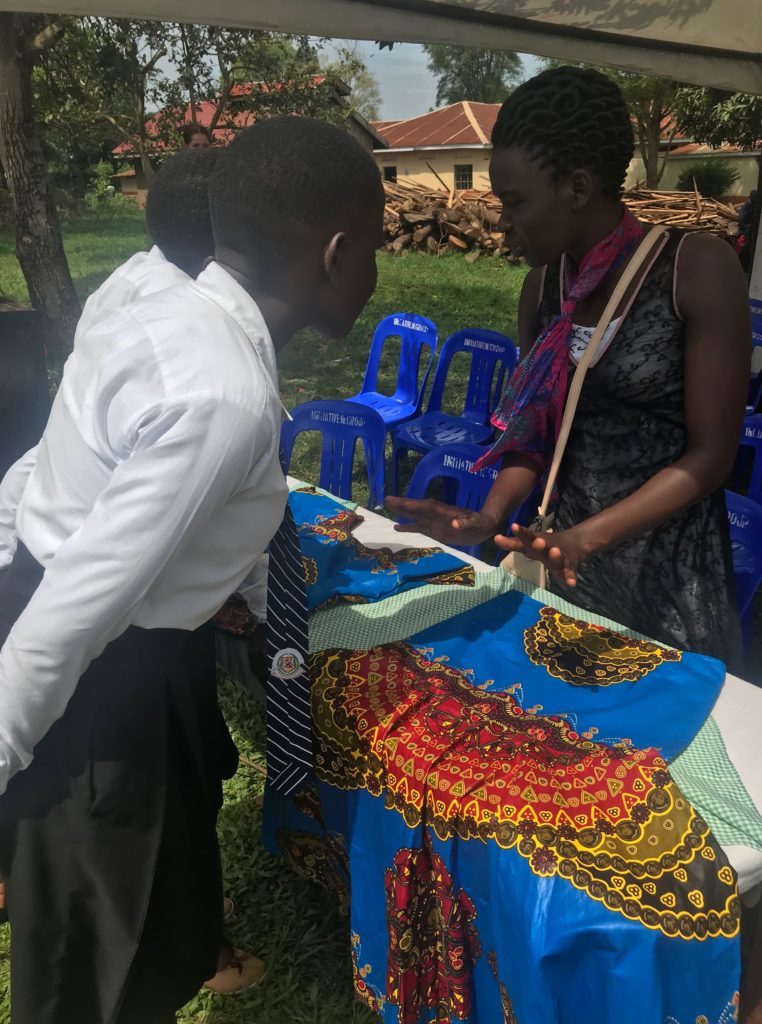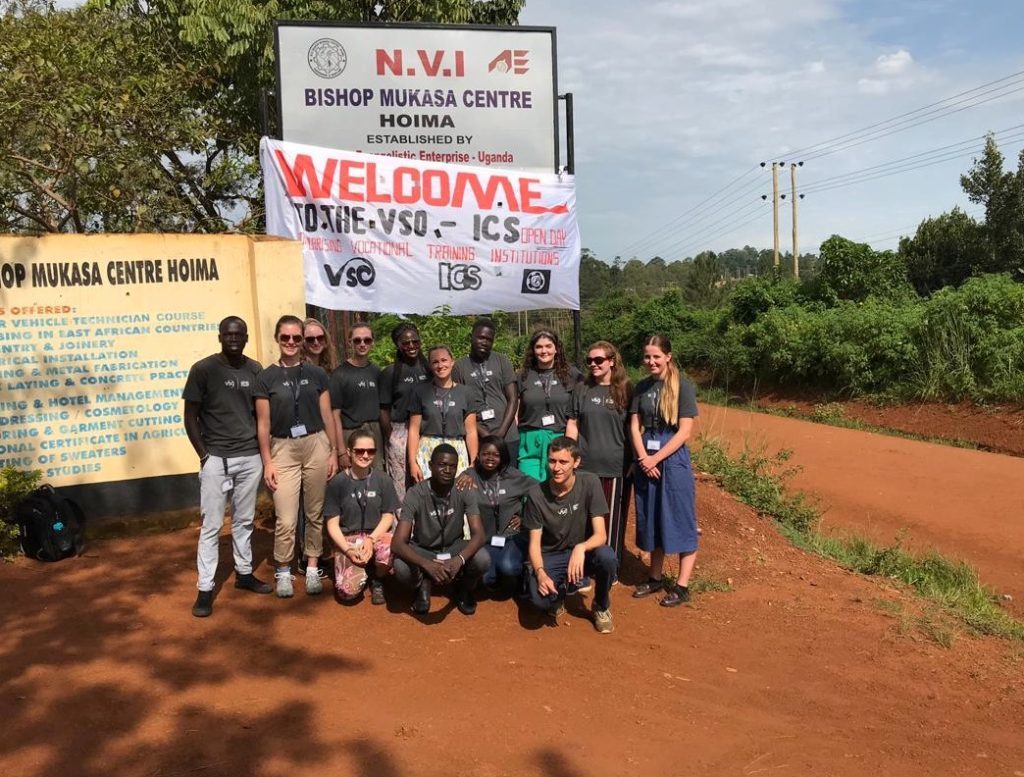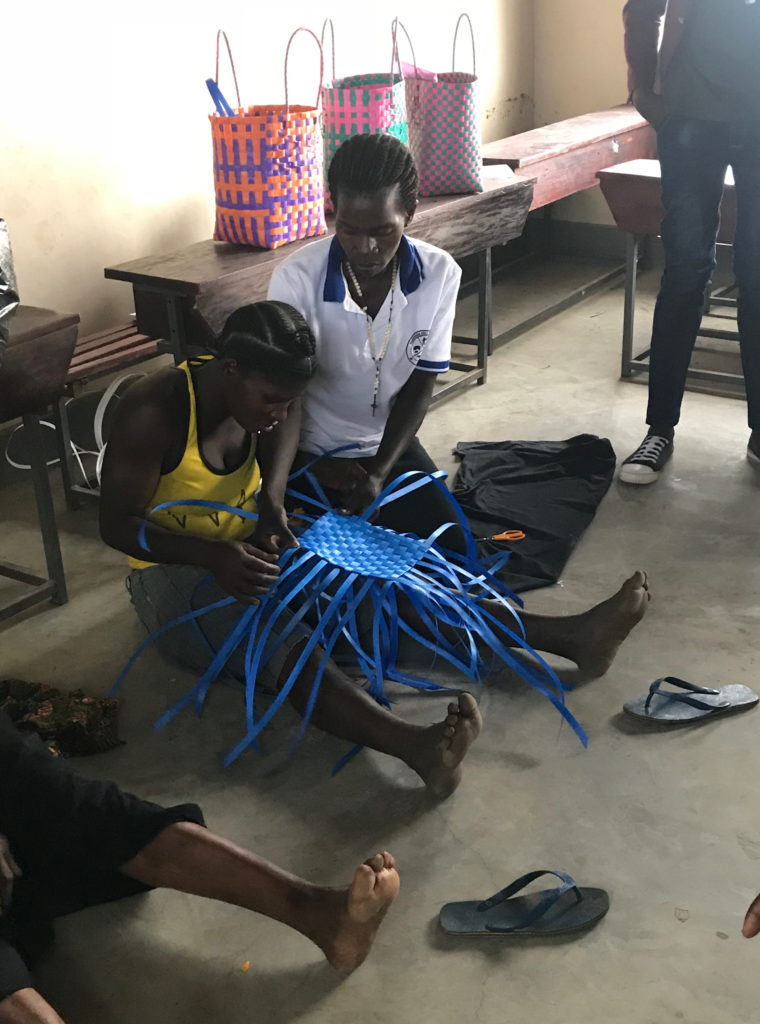From Milton Keynes to Hoima, Uganda Trip
Emily Brewer is a Manager of our Field Archaeologists Team in Milton Keynes.
She packed up her tool bag and left site to undertake a 3-month placement in Uganda with VSO (Voluntary Services Overseas).
Border Archaeology is supporting Emily during her 3-month placement.
Below is our second letter from Emily:
I am now almost half way through my placement in Hoima, Uganda – time has flown by! The team and myself are still busy working hard trying to organise various events and activities within the community, but, luckily, we’ve had a bit of time to explore the history and the culture of the region as well! We took a visit to the Mparo tombs, the resting place for the leaders of the Bunyoro kingdom, including King Kabalega, who fought against British Colonialism until his eventual death in 1923. I’ve definitely found it interesting to learn more about the history of a culture I previously knew very little about!
We have continued our work focusing on improving livelihoods within Hoima, especially amongst the youth, which suffers the highest unemployment rate; in 2012, 64% of youth in Uganda were without jobs. One of the largest problems relating to this is the negative perception of ‘blue collar jobs’ and practical skills. This is something we’ve tried to tackle through working directly with three Vocational Training Institutes and pressing upon them the benefits of these skill sets amongst the youth. We did this through a talk show on local radio station Spice FM, informing the community about the advantages of training at these institutions, including interviewing a previous student who now runs a successful masonry business, and informing people about the possible financial subsistence they can receive from the government or charities, such as VSO itself.
The talk show also helped us to advertise our next event; an open day at The Nile Vocational Institute. We invited the students from this and two other institutes to showcase some of their work, while prospective students from five local schools and two youth groups were invited to attend. Those invited included girls and youth with disabilities, two groups which are severely underrepresented in the workplace. It was brilliant seeing them interact with and be encouraged by current students who challenge these norms – there are currently seven female students studying motor-vehicle mechanics at The Nile.
People have been quite shocked when I explain that I’m a girl who can use a mattock and shovel!
This is a big step in Hoima to challenging gender stereotypes, especially in male dominated spheres, which are currently so firmly embedded within the community. The institutes also cater to people with disabilities, with more and more importance being placed on accessibility. One memorable student at St Josephs Vocational institute was hard of both sight and hearing yet had built himself a motorbike from scratch – definitely an inspiring story for young people in a similar situation. The event seemed to be a big success, with the guests being able to see the tangible benefits of income generating skills such as carpentry, mechanics, agriculture and tailoring, and hopefully the institutes will see the arrival of some new students in the future.
Following on from several dialogues with communities that I mentioned previously, we organised several sessions focusing on financial literacy. This included training on savings culture, loans and bank accounts from a local banker as well as training on the Village Savings and Loans method from one of our partners at Communication For Health Uganda. This group saving and loan system can be fundamental in helping members of the community to enrol in a training course, start a business venture, or (in some cases) just help to put food on the table and keep a child in school when times are hard. We overheard a few heated discussions after the sessions about who would get to be the group chairperson – so it seems that the training will be put into good use!
Our team has also been holding training sessions in schools on issues such as the Sustainable Development Goals (SDG) established by the United Nations in 2016. We’ve been looking at this in conjunction with Uganda’s National Youth policy, a government motion outlining the issues facing young people. Our programme is focusing particularly on SDG number 8 – ‘decent work and economic growth’ – as well as the issues outlined under education and employment under the youth policy. By raising awareness of the problems surrounding unemployment, and discussing possible solutions, such as learning vocational skills or utilising government initiatives such as the ‘Youth Livelihood Fund’ to fund business ventures, we hope to encourage young people on the different options available to them. VSO has also been holding ‘life skills’ sessions, such as CV writing and practising mock interviews to help prepare students for the world of work, and hopefully make them notable candidates in the sparse job market.
Self employment appears to be the most viable option for many people within the rural communities, especially those without formal qualifications. This has meant we have focused a lot of our work on income generating skills such as handcrafts and agriculture. Returning to Kykaboga, the resettlement camp for families displaced by the oil pipeline, we held a day training the community in these skills. This included making jewellery, liquid soap, basket weaving and agriculture. The entire community seemed to enjoy the sessions and will hopefully be able to turn these skills into a means of income. As the community has very little currently, we aim to return to Kykaboga and provide training in producing a business plan. VSO will then fund one of these plans in the hope of setting in motion a way to generate income back into this community. Likewise, we ran similar training sessions with the groups of commercial sex workers we previously met. As these women currently have a means of income, albeit one they want to leave behind, and now have been trained on saving money as a group, we hope they will be able to input some of that income into starting a new venture that they can eventually pursue full time.
Having had time to settle in properly to our new surroundings, and get to know the community better, the team has been able to address the relevant issues and we’re looking forward to implement our next few ideas!




